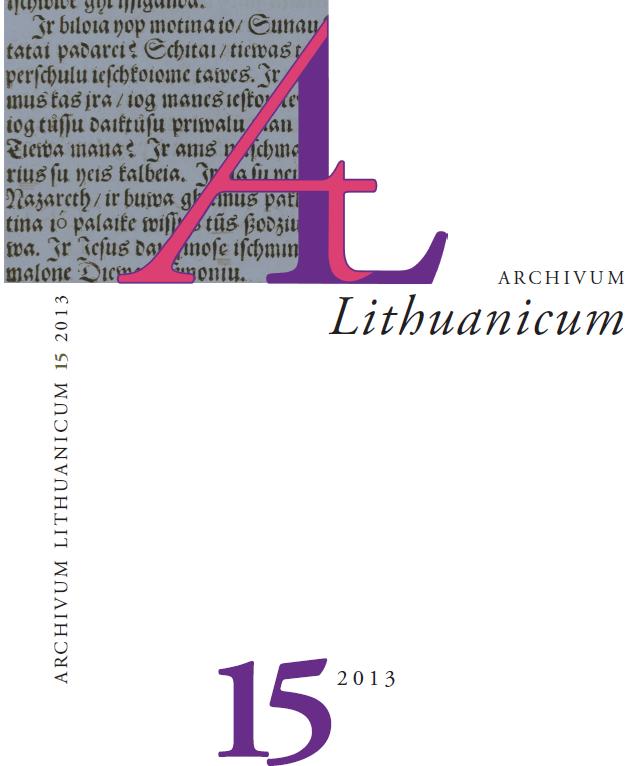Karolina Praniauskaitė: „Do młodego Poety“ („Jaunajam Poetui“). Eilėraščio istorija
Karolina Proniewska: "Do młodego Poety“ ("To the young poet"). A history of a poem
Author(s): Reda Griškaitė, Tomas AndriukonisSubject(s): Poetry, Lithuanian Literature, Theory of Literature
Published by: Lietuvių Kalbos Institutas
Keywords: Karolina Proniewska; To the young poet; Lithuanian classical poetry; 19th century;
Summary/Abstract: The name of Karolina or Karolina Anna Proniewska (Lith. Karolina Praniauskaitė, 1828–1859) today is tightly connected to the biography of another Lithuanian classical poet of the nineteenth century Antanas Baranauskas (Antoni Baranowski, 1835–1902). His acquaintance with Proniewska is considered to be one of the most important and even crucial events in Baranauskas’ biography. Proof of this is Baranauskas’ texts: both poetry and ego documents. The latter today is represented by his diary (private correspondence of the writers did not survive), and the poetry – by the literary dialogue between Proniewska and Baranauskas. Baranauskas’ diary or fragments of it were published multiple times. The fate of the poetical dialogue is different: a fragment of it (one poem of Baranauskas and one of Proniewska) was first printed in a Vilnius (Rus. Вильна, Pol. Wilno) periodical in 1857. A year later the second poem by Proniewska written to Baranauskas was included in her published collection of poems. In the following twentieth century only a few isolated pieces of this poetical conversation were published: in collections of works of both Proniewska and Baranauskas, in books of memoirs and essays, and in literary anthologies. For the first time attempts to reconstruct the complete dialog were made in 2013: two poems by Proniewska and seven poems by Baranauskas were published. But this time again they did not include Proniewska’s first work of the dialogue “Do młodego Poety” (“To the Young Poet”), which had been its impulse. Ludicrous misunderstanding ordained that this work so far was considered lost and unknown.
Journal: Archivum Lithuanicum
- Issue Year: 2013
- Issue No: 15
- Page Range: 141-190
- Page Count: 50
- Language: Lithuanian

